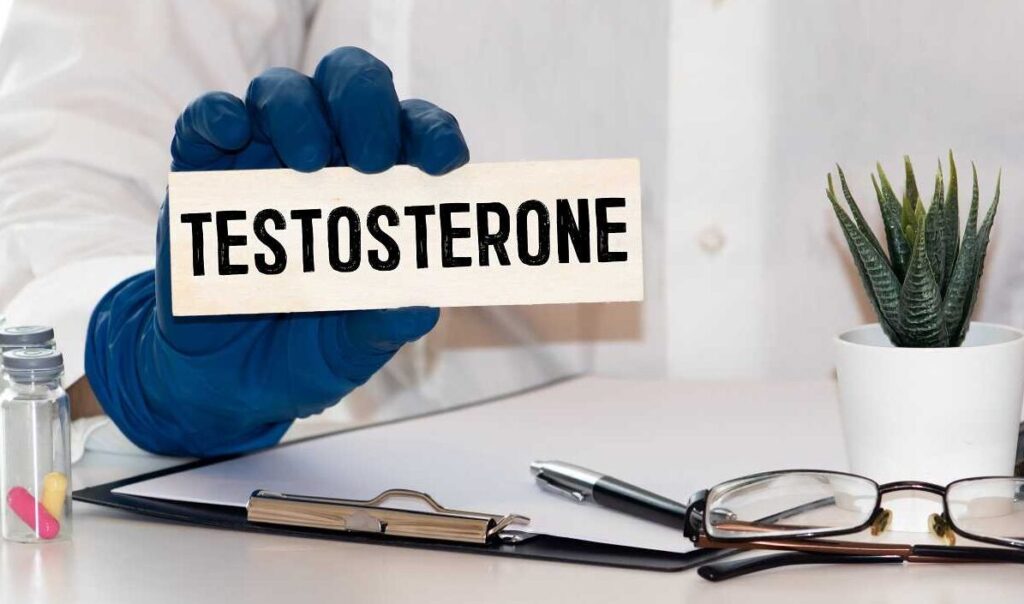You’re feeling off lately, with low energy, mood swings, maybe even a dip in libido, and you’re wondering what’s going on. Could it be that you have suppressed the Hypothalamic-Pituitary-Testicular Axis (HPTA)? Recognizing the signs is key, as they can lead to bigger health issues if ignored. But don’t worry, there are steps to take to address this.
What Is the HPTA and Why Does It Matter?
The hypothalamic-pituitary-testicular axis (HPTA) is fundamental in regulating your body’s testosterone production and overall reproductive health. This complex network involves the hypothalamus, pituitary gland, and testes working in harmony to maintain hormonal balance. When the HPTA functions properly, it guarantees ideal testosterone levels, supporting muscle growth, libido, and vitality.
However, various factors can lead to HPTA suppression, resulting in impaired HPTA function and potential hormonal imbalances. A disrupted axis can cause a decrease in testosterone production, negatively impacting your well-being. Addressing any signs of impaired HPTA function early is essential for your long-term health.

Common Signs and Symptoms of HPTA Suppression
Look for low testosterone symptoms like reduced libido and mood changes. You might feel chronic fatigue and notice muscle loss. These signs often stem from suppressed LH and FSH, hormones vital for testosterone production.
As testosterone levels drop, estrogen dominance can also occur, leading to further mood swings and energy dips. You might experience depression or anxiety, as well as cognitive changes that make it hard to concentrate. Disrupted sleep and recovery patterns will leave you feeling drained.
Recognizing these symptoms is essential for addressing HPTA suppression early and effectively. If these signs persist, consider consulting a healthcare professional to explore potential solutions and interventions.
Causes of HPTA Suppression
While diving into the causes of HPTA suppression, several factors can throw your hormonal balance off course. Anabolic steroid use is a primary culprit, often leading to hormonal shutdown as it disrupts normal endocrine system function. When you abruptly stop a steroid cycle without implementing a proper PCT protocol, your body’s natural testosterone production can be severely affected.
Overtraining and chronic stress also play a role in suppression, as they strain your body’s ability to maintain hormonal equilibrium. Additionally, certain medications or underlying endocrine disorders might contribute to this imbalance.
To fully understand the impact, consider getting bloodwork for hormone levels, which can reveal the extent of disruption and guide your path to recovery.

Diagnosing HPTA Suppression
When diagnosing HPTA suppression, bloodwork is your most reliable tool. Check key hormones like testosterone, LH, FSH, estradiol, and prolactin. These tests help assess your male reproductive health and identify imbalances. It’s essential to time your tests properly and compare them to baseline hormone levels for accurate interpretation. A sudden libido crash or other symptoms post-cycle can signal the need for recovery protocols.
Tracking these changes helps determine if post-cycle therapy (PCT) is necessary for natural hormone recovery. Without proper intervention, your HPTA might not bounce back on its own. Regular monitoring guarantees you’re on the right path, preventing further suppression and aiding in a smoother recovery process.

What to Do If You Have Suppressed HPTA
Begin with a solid post-cycle therapy (PCT) plan that typically involves the use of SERMs such as Clomid or Nolvadex, which help encourage your body to restart its natural testosterone production. Incorporating hCG (human chorionic gonadotropin) can also aid in restoring testicular function. Consider adding an aromatase inhibitor (AI) to manage estrogen levels.
Focus on natural recovery by optimizing your diet, ensuring adequate sleep, and considering supplements like vitamin D and zinc. These steps can support hormonal health.
Don’t hesitate to consult an endocrinologist for personalized medical advice. Regularly monitor your progress through follow-up blood tests to track improvements in your hormone levels.
How Long Does Recovery Take?
Taking steps to address HPTA suppression is just the beginning; it’s important to understand how long recovery might take. Several factors influence the timeline, such as the duration and type of anabolic steroids used, your age, and overall health.
Recovery can happen in a few weeks to several months. Observing positive signs, like restored libido and energy, indicates progress. However, permanent suppression is a risk, and some individuals might not fully recover without medical intervention. Regular follow-up labs are essential to monitor hormone levels and guarantee they’re returning to normal.
Patience and consistency with post-cycle therapy (PCT) and lifestyle adjustments are key. Remember, every person’s journey is unique, so stay proactive and informed about your progress.
Frequently Asked Questions
Can Lifestyle Changes Alone Restore Normal HPTA Function?
You can improve your HPTA function with lifestyle changes like optimizing your diet, ensuring adequate sleep, managing stress, and using supplements. However, severe suppression might require medical intervention or PCT to restore hormonal balance fully.
Are There Any Non-Prescription Supplements That Help HPTA Recovery?
You can try non-prescription supplements like ashwagandha, D-aspartic acid, and zinc to support HPTA recovery. They may help boost testosterone levels naturally, but always consult a healthcare professional before starting any new regimen.
How Does HPTA Suppression Affect Fertility Long-Term?
HPTA suppression can negatively impact your fertility long-term by reducing sperm production and altering hormone levels. It’s essential to address suppression promptly to avoid permanent damage.
Is HPTA Suppression Common Among Non-Steroid Users?
You might think HPTA suppression only affects steroid users, but it’s not uncommon among non-steroid users, too. Chronic stress, overtraining, and certain medications can suppress your HPTA, impacting your hormonal balance and overall well-being.
Can Psychological Stress Contribute to HPTA Suppression?
Yes, psychological stress can contribute to HPTA suppression. When you’re experiencing high stress levels, your body’s cortisol production increases, potentially disrupting hormonal balance and impacting the hypothalamic-pituitary-testicular axis, which can lead to suppression.



